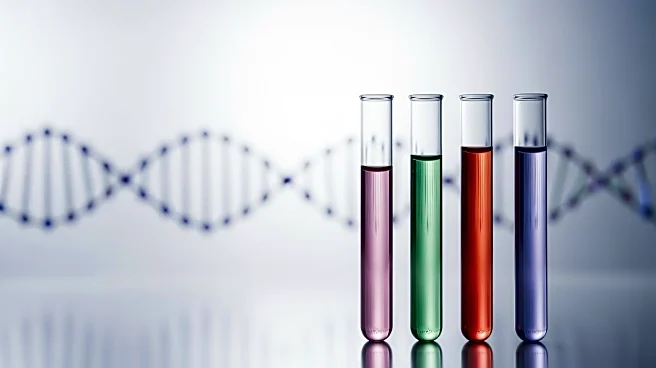What's Happening?
Medical professionals are emphasizing the importance of a multi-layered approach to early cancer detection. Standard screening tests, MCED blood tests, genetic testing, and whole-body MRI are recommended to close existing gaps in cancer detection. Standard tests serve
as the baseline, while MCED tests can identify cancers not covered by routine screenings. Genetic testing helps pinpoint individuals who may require more aggressive preventive measures, and whole-body MRI offers a radiation-free method for examining those at high inherited risk. This comprehensive strategy aims to improve early detection rates and potentially save lives.
Why It's Important?
Early detection of cancer is crucial for effective treatment and improved survival rates. By integrating multiple testing methods, healthcare providers can offer a more thorough examination, potentially identifying cancers that might otherwise go unnoticed. This approach could lead to earlier interventions, reducing the burden on healthcare systems and improving patient outcomes. As cancer remains a leading cause of death, advancements in detection methods are vital for public health and can significantly impact the lives of individuals and families affected by the disease.
















